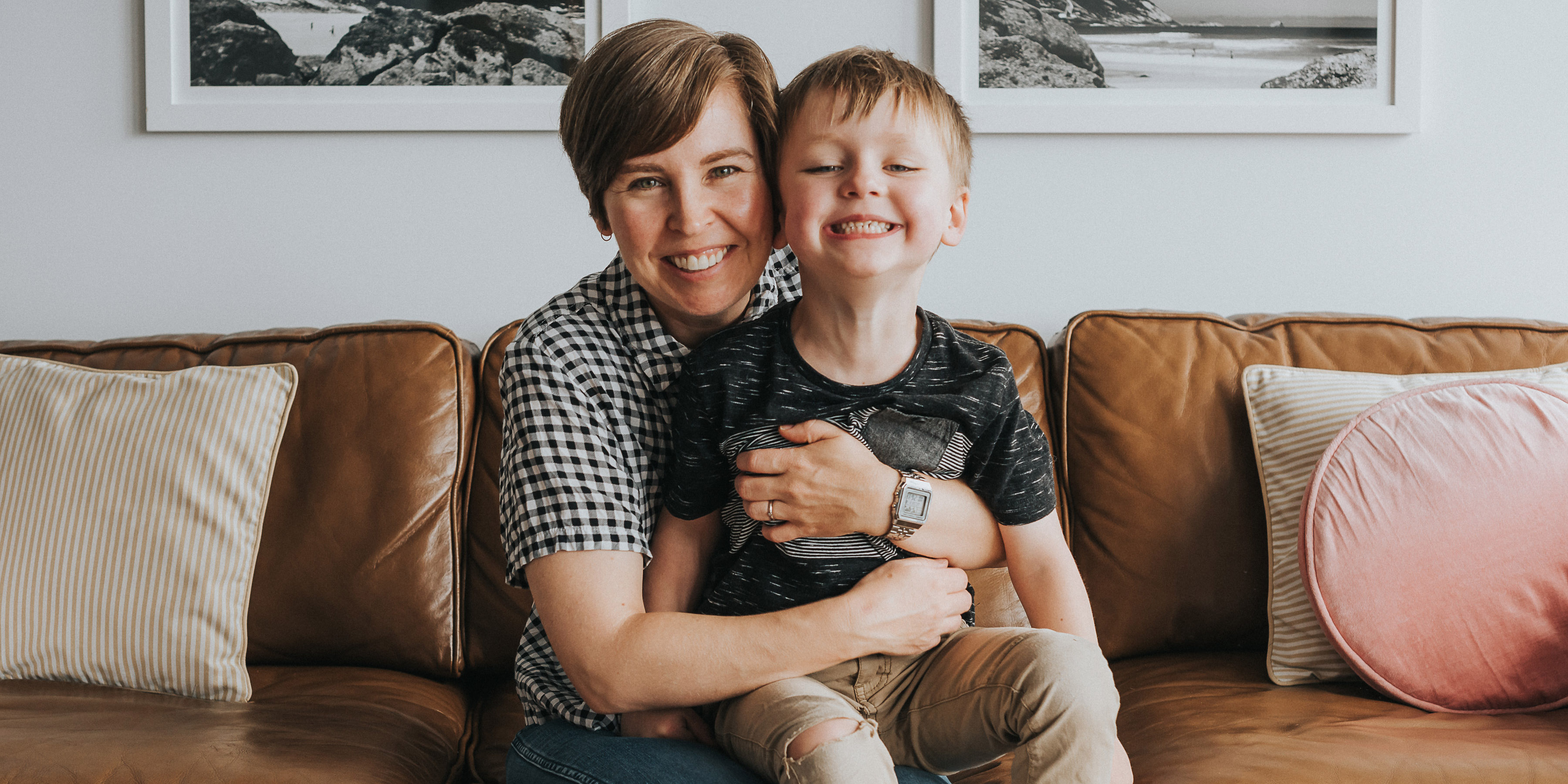
Pregnancy is often touted as one of the most beautiful times in a woman’s life but for many, the experience can be riddled with severe stress, anxiety and depression.
This was the situation Bree Dunbar found herself in when pregnant with her son Ari, now four years old. At the age of 32, Bree and her partner Dave had spoken about having a baby but she had begun to have second thoughts when she discovered she was pregnant.
This week is Perinatal Depression and Anxiety Awareness (PANDA) Week – a time to shine the light on the tens of thousands of families affected by perinatal depression and anxiety each year.
Severe morning sickness shrouded much of Bree’s early weeks of pregnancy and she contemplated a termination whilst grappling with the reality of being pregnant. These thoughts continued to plague her throughout her pregnancy.
“Early on I put my feelings down to just being sick, even though I knew I wasn’t feeling great mentally,” she said. “I did have a history of feeling low and had studied psychology so I understood the warning signs but it wasn’t until about week 14 that I admitted to myself how low I felt. I told my partner that I was struggling, I felt like I didn’t want to be pregnant anymore.”
Breeana was referred to the Royal Women’s Hospital Centre for Women’s Mental Health, and she credits the support she received throughout the rest of her pregnancy in keeping her afloat.
“I had reached a point where I couldn’t function, I couldn’t cope,” she said.
About two thirds of the women seen through the Centre for Women’s Mental Health each year are perinatal patients.
Senior Clinical Psychologist Emma Symes said symptoms of anxiety and depression can be highly distressing for the person. They can interfere with a woman’s relationship with her partner, her confidence and her ability to imagine herself as a mother.
“These mental health conditions don’t necessarily resolve with birth,” Dr Symes said. “In fact, antenatal anxiety and depression are one of the strongest risk factors for postnatal symptoms of anxiety and depression.”
However, Dr Symes said it was important for women to understand that some anxious moments during pregnancy was normal.
“Pregnancy is a time of enormous emotional and physiological change, so it’s normal for women to feel uncertain or worried about how they will cope at times. But it’s important to differentiate between what is normal worry and worry that is persistent and interferes with a woman’s capacity to function,” she said.
“It is important to remember that anxiety and depression are treatable conditions, and there are a range of effective, evidence-based psychological and pharmacological treatment options available”.
“The benefit to women who seek treatment for anxiety and depression during pregnancy, is that they are in a better place to meet their baby, they can be emotionally present and are more likely to enjoy this relationship.”
The Women’s Centre for Women’s Mental Health BEAR study (Building Early Attachment and Resilience) focuses on programs to support women with mental health issues, or at risk of family violence, during and after pregnancy. The BEAR programs, which include mindfulness meditation and a parenting intervention, are part of ongoing research to determine the most effective ways to support mothers with mental health issues.
“The groups are aimed at strengthening the woman’s capacity to understand her baby’s cues and emotional life, and to also stay present during the experience. The mother’s capacity to sensitively respond to her baby is the foundation for a secure relationship with her baby,” Dr Symes said.